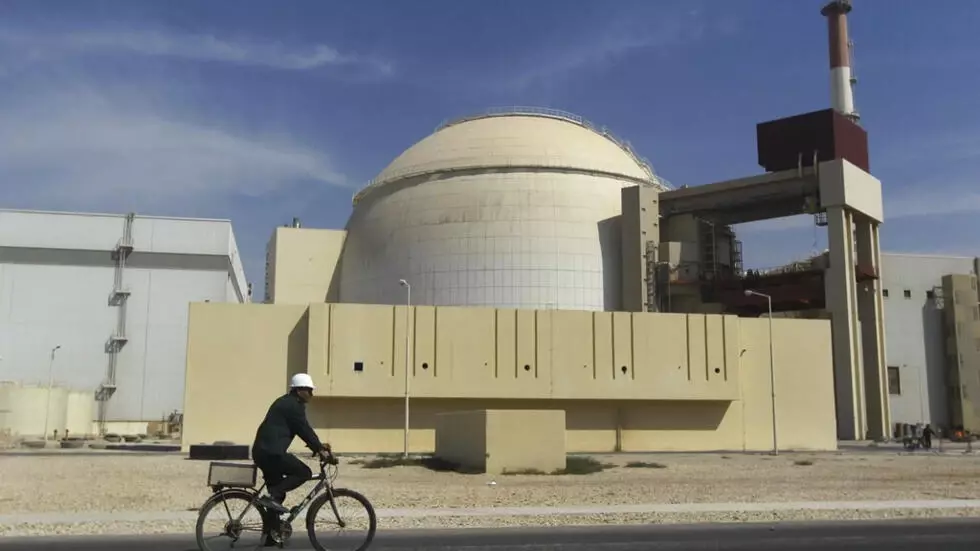
The UN nuclear watchdog said Monday it regretted that "no progress" had been made by Iran on outstanding issues, including reinstalling cameras to monitor Tehran's nuclear programme and explaining uranium traces.
Iran, however, has slowed down the pace at which it produces uranium enriched up to 60 percent -- close to bomb-grade -- according to the International Atomic Energy Agency (IAEA).
The IAEA has been struggling for over two years to monitor Iran's nuclear programme, which Tehran has stepped up since the 2015 international nuclear deal began to unravel.
The two confidential reports seen by AFP come days before the IAEA board of governors is due to meet to review Iran's progress in addressing the watchdog's concerns.
The agency noted that "no further progress" has been made in reinstalling some monitoring equipment set up under the 2015 deal -- but which was later removed by Iran.
In March, Tehran vowed to reactivate surveillance devices.
The IAEA also deplored that it has had no access to any of the data recorded by its surveillance cameras since February 2021.
"Since June 2022, the only recorded data that exists is that collected by cameras installed at workshops in Esfahan in May 2023," it said, adding that it is "indispensable" that Iran provides access to "all existing recorded data".
On Tehran's lack of progress in explaining nuclear material found at undeclared sites -- Turquzabad and Varamin -- the IAEA said it "requests Iran to work with the agency in earnest and in a sustained way towards the fulfilment of the commitments".
The thorny issue has long exacerbated relations between the two parties.
In a separate report, the IAEA said Iran's total stockpile of enriched uranium was lower than in May -- due to technical reasons -- but still more than 18 times the limit set in the 2015 accord.
Iran's total enriched uranium stockpile was estimated at 3,795.5 kilogrammes (8,367.7 pounds) as of August 19, down by 949 kilogrammes from May.
The limit in the 2015 deal was set at 202.8 kilogrammes.
The stockpile of uranium enriched to up to 60 percent stands now at 121.6 kilos, up from 114.1 kilos in May.
Enrichment levels of around 90 percent are required for use in a nuclear weapon.
The slowdown in growth of Iran's stockpile of near bomb-grade uranium might be due to a political or technical decision, said a senior diplomat, who spoke on condition of anonymity.
The production rate has slowed to about one third of what it was previously, the diplomat added.
Iran also has 535.8 kilos of uranium enriched up to 20 percent.
The 2015 deal -- curbing Iran's nuclear programme in exchange for sanctions relief -- started to unravel in 2018 when then US president Donald Trump unilaterally withdrew from it and reimposed sanctions.
Efforts to revive it have been fruitless so far with European-led talks on hold since 2022.
A second diplomat told AFP that discussions were ongoing on whether to censure Iran at the upcoming board meeting over the "deeply frustrating" lack of progress highlighted in the report.
"As it is often the case with Iran, it's one step forward, one step back," Ali Vaez, Iran project director at the International Crisis Group, told AFP.
"But it is not resolving the crisis. It's simply deferring it."
Kelsey Davenport of the Arms Control Association think-tank said Iran slowing the production of uranium enriched to 60 percent was "a positive step, but the significance is more political than technical".
"Iran could be signalling its willingness to de-escalate and stabilise the current crisis," she told AFP.
Tensions between Tehran and Washington eased last month with the announcement of an agreement for Iran to release five American prisoners in exchange for the return of $6 billion in Iranian funds frozen in South Korea.
But the delicate agreement does not include the possibility of a return to the nuclear deal in the run-up to the 2024 US presidential election.